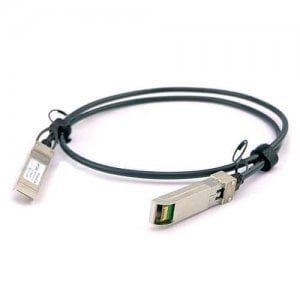Sell My Fire Damaged House: A Complete Guide

Experiencing a house fire can be devastating. Beyond the emotional toll, many homeowners are left wondering, “How do I sell my fire damaged house?” While selling a fire-damaged property can be challenging, it’s entirely possible with the right strategy and knowledge. Whether the fire caused minor smoke damage or a full structural loss, this article will guide you through the process of selling your fire damaged house effectively and confidently.
Understanding the Impact of Fire Damage on Property Value
Before diving into how to sell your fire damaged house, it’s important to understand how fire affects property value. Fire can impact a home in several ways:
- Structural Damage: The heat from flames can weaken or destroy foundational elements, making the house unsafe.
- Smoke and Soot Damage: Smoke can permeate walls, carpets, and insulation, making cleanup difficult and costly.
- Water Damage: Often, water used to extinguish the fire causes secondary damage, including mold growth.
- Aesthetic Damage: Burnt walls, ceilings, and fixtures make the house less appealing to buyers.
These factors usually reduce the market value of your home. However, that doesn’t mean it’s unsellable. In fact, there are specific buyers and companies who specialize in buying fire damaged houses.
Step-by-Step Process to Sell My Fire Damaged House
1. Assess the Damage and Get a Professional Inspection
The first step to sell my fire damaged house is to understand the extent of the damage. Hire a licensed contractor, structural engineer, or fire damage restoration expert to conduct a thorough inspection. This will help you determine:
- Whether the home is safe to enter
- What repairs are needed
- Estimated cost of restoration
An accurate assessment ensures transparency and prepares you for any negotiations with potential buyers.
2. Contact Your Insurance Company
Your homeowner’s insurance policy may cover part or all of the fire damage. File a claim and work with the insurance adjuster to determine the compensation amount. This settlement can be used in two ways:
- Repair the home before selling
- Sell the house as-is and use the settlement to recover losses
If you choose to sell without repairs, it’s critical to inform buyers that the property has fire damage, and whether you have insurance funds to transfer with the sale.
3. Decide Between Repairing or Selling As-Is
One of the key decisions when trying to sell my fire damaged house is choosing between investing in repairs or selling as-is.
Option 1: Repair and Sell
Pros:
- Can significantly increase the selling price
- Attracts more traditional homebuyers
- Easier to list on MLS
Cons:
- High upfront repair costs
- May take months to complete
- Stressful to manage contractors
Option 2: Sell As-Is
Pros:
- Quick and easy transaction
- No repair costs
- Attracts investors or cash buyers
Cons:
- Lower sale price
- Fewer interested buyers
If you’re in urgent need of cash or don’t want to deal with the hassle of renovations, selling the fire damaged house as-is might be your best choice.
Who Buys Fire Damaged Houses?
When you’re ready to sell your fire damaged house, consider targeting specific types of buyers:
1. Real Estate Investors
Investors often buy fire damaged homes below market value, repair them, and either rent them out or flip them for profit. They’re experienced in handling distressed properties and typically pay cash, which speeds up the process.
2. Cash Home Buyers
Cash home buying companies specialize in buying homes in poor condition. They usually offer quick closings and require no repairs or inspections from the seller. While their offers might be lower than market value, they provide a fast, hassle-free solution.
3. Contractors and Flippers
Some contractors buy fire damaged homes to repair them and resell for a profit. These buyers might offer a better price than investors if they can manage repairs more cost-effectively.
4. DIY Enthusiasts
Some individuals look for discounted properties to restore themselves. These buyers might be attracted to your home’s location, lot size, or potential for personalization.
How to Market a Fire Damaged House
Even a fire damaged property needs strategic marketing. Here are some tips:
Highlight the Potential
Mention features that remain intact—like a large lot, solid foundation, or newer roof if they weren’t affected. Emphasize the property’s potential after restoration.
Be Transparent
Disclose the fire damage upfront. Provide inspection reports and photos before and after the fire, if available. Buyers appreciate honesty and it builds trust.
Use “Sell My Fire Damaged House” in Listings
Include keywords like “sell my fire damaged house” or “fire damaged fixer-upper” in your online listings. This helps attract buyers specifically searching for this type of property.
Partner with an Experienced Real Estate Agent
Find an agent who has experience selling distressed properties. They can price your home appropriately and tap into networks of investors and cash buyers.
Benefits of Selling Your Fire Damaged House As-Is
Choosing to sell your home in its current condition can offer numerous benefits:
- Speed: Avoid months of repairs and list your property immediately.
- Cost Savings: No need to invest in expensive renovations.
- Peace of Mind: Bypass the stress of rebuilding after a traumatic event.
- Flexible Buyers: Cash buyers and investors are often flexible with terms and timelines.
If your priority is to move on quickly, the “sell my fire damaged house” route as-is is often the most practical solution.
Legal and Disclosure Considerations
Most states require you to disclose any known damage, including from fire. Failure to do so could lead to legal problems down the road. Make sure to:
- Provide a full disclosure form
- Include insurance documents and inspection reports
- Be honest about any repairs already made
Consult a real estate attorney to ensure you comply with local disclosure laws.
Final Thoughts: Sell My Fire Damaged House with Confidence
Selling a fire damaged home can be overwhelming, but it’s far from impossible. Whether you choose to repair it for a higher sale price or sell as-is for a faster closing, there’s a path forward that suits your situation. The key is to assess the damage, understand your options, and connect with the right buyers who are prepared to take on a property with fire history.




